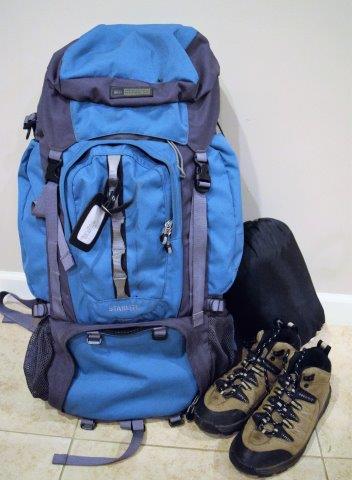When you’re hiking somewhere rural, there’s no concierge, no locker, and certainly no chance of someone else carrying your pack. Everything goes on your back, so over-packing will only be a problem and an annoyance.
With first aid kits, food, changes of clothes, and sometimes very specific, specialized equipment on your list, some items are so necessary they have to have a place in your backpack. There are smart little tricks you can use though which will make your backpack lighter, your hike easier, and ensure you don’t leave anything important behind.
Choose the lightest equipment
When you have a list of things you absolutely have to pack, you can save a significant amount of weight if you shop around for the most lightweight alternatives. Many outdoor equipment manufacturers are trying to combat the heavy backpack problem by using newer, lightweight materials. They might be more expensive, but they’re going to be worth it.
Pack multipurpose items where you can
Your gear needs to work together as much as possible, so if you can combine uses you’re well on your way to reducing the weight of your bag. One of the smartest space savers can be the most unexpected. Ever heard of a hiking stick that doubles up as a tripod? It could change your next expedition.

Lose the “it will come in handy” attitude
If you’re determined to travel light, you need to really be willing to do it. Make your list of essential items and then really scrutinize it. Do you need that many pairs of socks? Is there any way you can leave something behind? Have it all out in front of you and make tough decisions. If you’re asking yourself “what if,” it probably isn’t necessary.
This is particularly essential on mammoth hiking trails like the 2,200 mile Appalachian Trail. Every ounce counts when you could be at it for six months.
Lightweight clothes are a winner
Most modern hiking wear is made from synthetic, lightweight fabrics that are breathable, quick to dry, and really light to carry. Ask yourself how many of each item you need and prioritize the garments that you know won’t weight much. If it’s heavy, ask yourself why. Is it really necessary? Can you pack something else instead? Interrogate yourself on all of your choices.

Use your pockets
Many hiking garments are loaded with super convenient pockets, so take advantage of them! Any small items that need to be handy are an obvious choice, but there might even be room for small toiletries and balled up underwear. Be creative with the space that you have.
Eat your heaviest food first, or don’t pack it at all
Tins and cans are heavy and take up room in your backpack. As a rule, dehydrated foods are the most ergonomic and lightweight. They usually come in thin sachets that can be stacked, and many of them don’t taste too bad either.
Hiking is all about enjoying the experience and traveling to places that offer you a new terrain and a new challenge. The last thing you want to be doing is trying to adjust the weight on your back. Pack sensibly, think through your choices, and if all else fails, sneak something into your companion’s bag. They won’t notice.
For More:
- Find more hiking tips at BackpackerVerse.com.
- On our site: Packing for a Car Camping Adventure
– Cover photo by Nick Stoyanov; others by Nancy Zaffaro.



